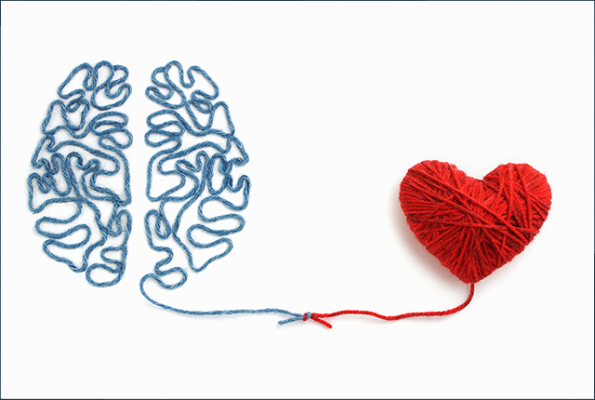
Getty Images
March 9, 2023 — People with a recent diagnosis of atrial fibrillation (AF), the most common irregular heart rhythm, have a modestly higher risk of developing dementia than people without the condition, according to research published today.
“Previous studies that have examined the link between atrial fibrillation and dementia have yielded conflicting results, and we hope that our study’s large sample size helps to establish confidence in our findings,” said Dr. Nisha Bansal, a professor of medicine at the University of Washington School of Medicine. “The study also included a community based, diverse population, which may increase the generalizability of our findings.”
Bansal was corresponding author of the paper, which appears in the Journal of the American Heart Association.
Atrial fibrillation, typically a very rapid heart rhythm, can spur blood clots in the heart, increasing someone’s risk for stroke and heart failure, and shorten lifespan.
“We know that atrial fibrillation is one of the strongest risk factors for ischemic stroke, but whether atrial fibrillation increases the risk of developing dementia independent of having a stroke has been unclear,” said senior author Dr. Alan S. Go, a senior research scientist at the Kaiser Permanente Division of Research. “If it does, it would have important clinical and public health implications given that atrial fibrillation is becoming more common nationally and internationally.”
The research spanned 2010 to 2017 and involved nearly 197,000 patient records from Kaiser Permanente health systems in California. Half of the patients had been recently diagnosed with atrial fibrillation; their counterparts in the control group were selected for similar age and health profiles but did not have AF. Both patient groups’ medical records were reviewed for three years, on average, to identify subsequent diagnoses of dementia, including Alzheimer’s disease.
Overall, people with newly diagnosed atrial fibrillation had a 13% higher risk of developing dementia. That risk appeared to be amplified in people whose AF diagnosis came before 65 years of age (65% higher risk) and people who did not have chronic kidney disease (20% higher risk). No such significant differences in risk were seen in patients’ sex, race or ethnicity.
The researchers used a methodology to mitigate the influence of other medical conditions also known to heighten dementia risk, Bansal said. So it was a surprise, she added, to find greater risk among relatively younger patients and those without kidney disease. As a nephrologist, Bansal is particularly interested in the influence of kidney disease on total body health.
“You don’t think about ostensibly healthier people being at a higher risk for serious health conditions — especially for a disease like dementia,” Bansal said.
The findings also show that risks of complications related to atrial fibrillation are not uniform in all patients, she said.
“Many people with atrial fibrillation will not develop dementia, but I think this is a conversation a patient with newly diagnosed atrial fibrillation needs to have with their doctor, weighing their potential individual risk of developing dementia, as well as weighing the risks and benefits of treating the atrial fibrillation.”
Bansal said the next stages of this research will aim to better understand the biological mechanisms linking atrial fibrillation and dementia, and studying whether different AF therapies — for instance, catheter ablation of the heart muscle vs. medication — affect patients’ trajectories for dementia and other complications.
For more information: https://www.uwmedicine.org/school-of-medicine


 July 31, 2024
July 31, 2024 









